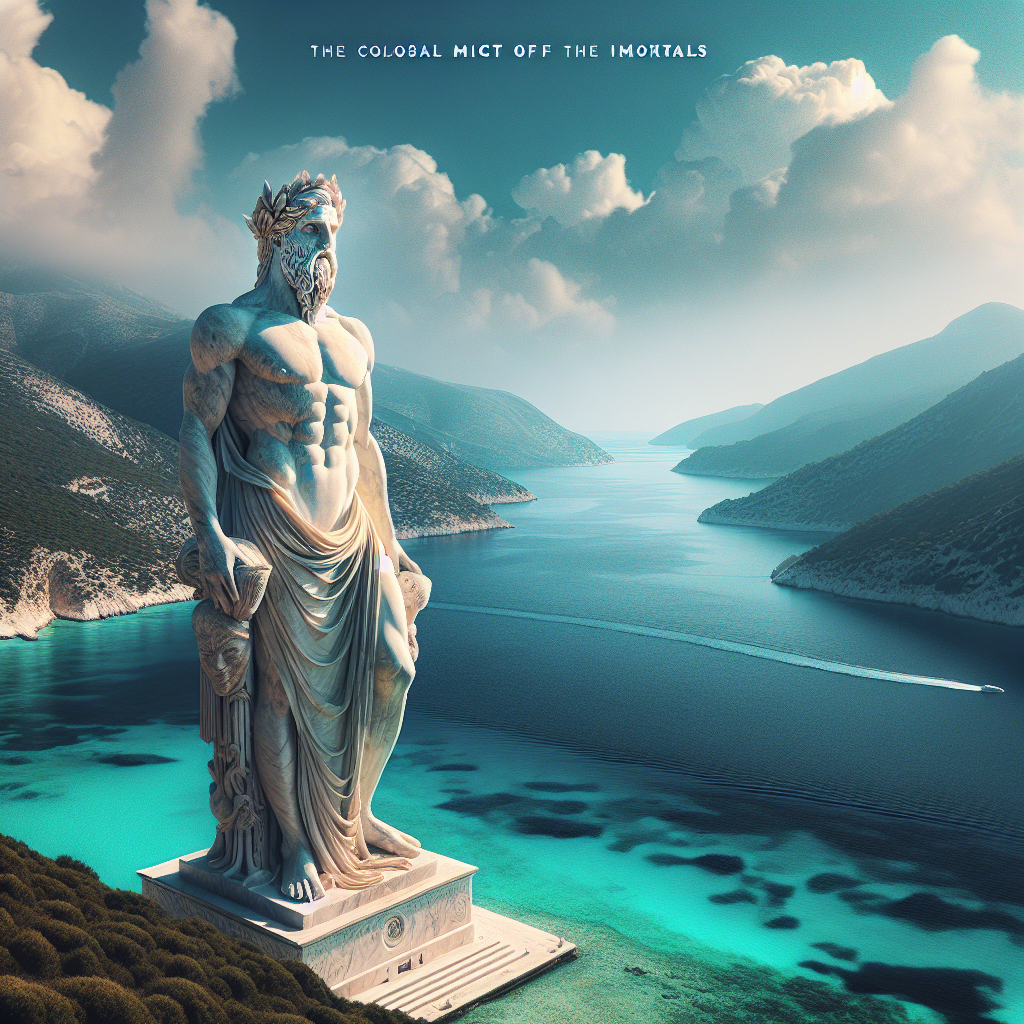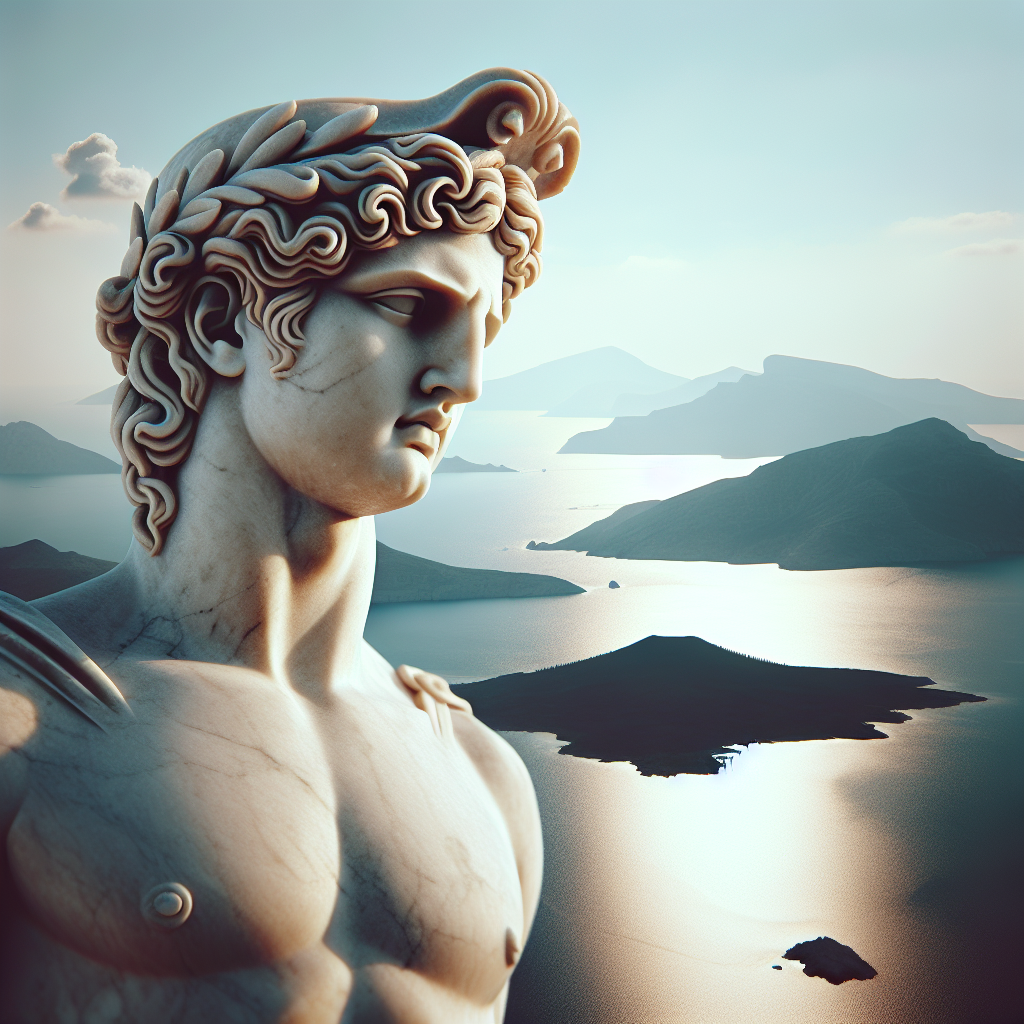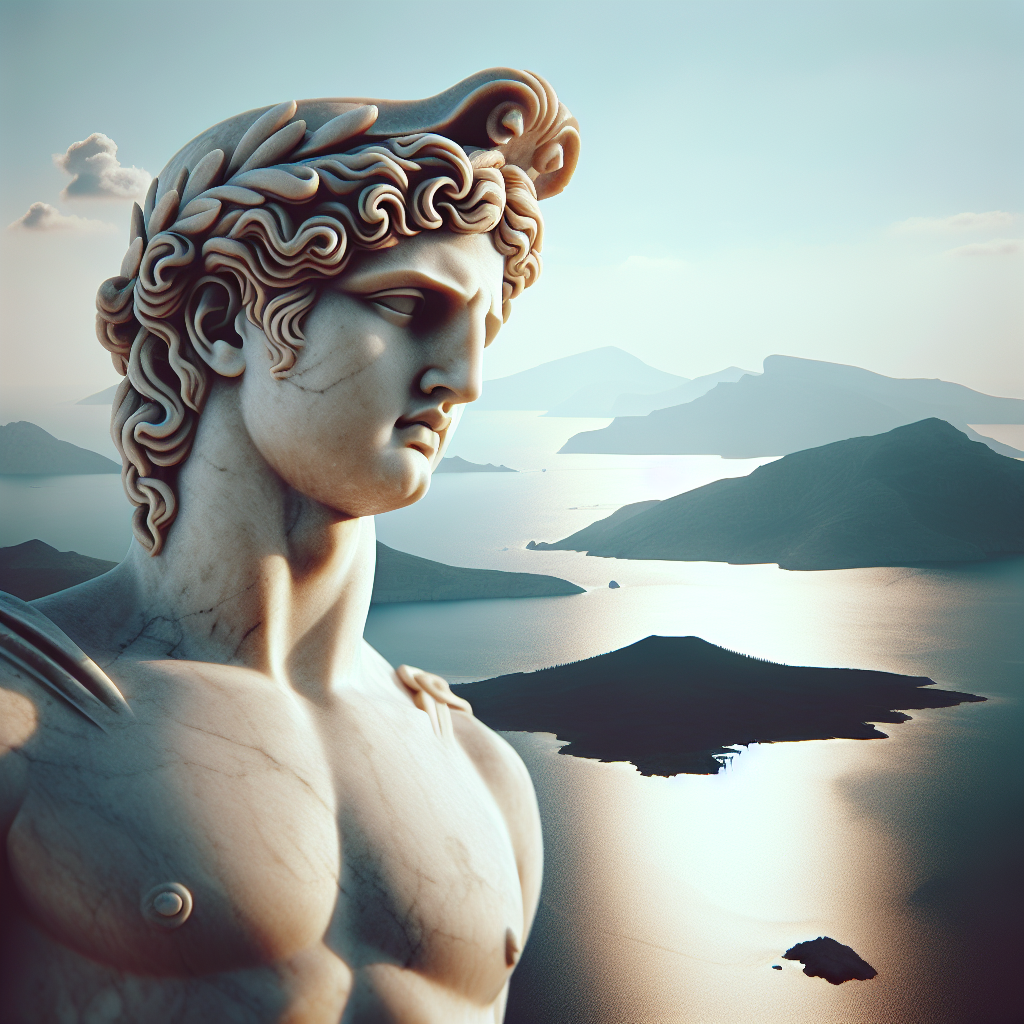Imagine stepping foot onto the captivating Greek islands, with their picturesque landscapes and vibrant culture. As you embark on your journey, you can’t help but be enveloped by the rich tapestry of Greek Island Mythology. These ancient tales, filled with gods and goddesses, weave a fascinating narrative that stretches across the archipelago. From the mighty Zeus atop Mount Olympus to the enchanting Aphrodite rising from the sea foam, the Greek islands hold the key to unlocking a world of mythical wonder. Join us as we delve into the depths of Greek Island Mythology, exploring the stories and legends that have captivated hearts for centuries.
Gods and Goddesses of Greek Island Mythology

Introduction
Welcome to the fascinating world of Greek Island mythology! The Greek islands are not only known for their stunning beauty and breathtaking landscapes but also for their rich mythological traditions. These islands have been intertwined with the tales of gods and goddesses, whose stories have captivated the imaginations of people for centuries. In this article, we will dive deep into the importance of gods and goddesses in Greek culture and explore the major deities as well as those specific to each island.
The Importance of Gods and Goddesses in Greek Culture
In Greek culture, gods and goddesses held a significant place and were an integral part of everyday life. These divine beings were revered and worshipped as they were believed to have immense power and influence over different aspects of human existence. From governing the forces of nature to embodying virtues and characteristics, each deity symbolized a specific aspect of life. The Greek people sought their favor, made offerings, and held ceremonies to honor and appease these gods and goddesses, believing that their blessings would bring prosperity, protection, and good fortune.
Overview of Greek Gods and Goddesses
Greek mythology is vast and complex, with a multitude of gods and goddesses, each with their own unique roles and abilities. These deities were not only worshipped collectively but also had individual cults and temples dedicated to them throughout the Greek islands. Let’s now delve into the major Greek gods and goddesses and uncover their fascinating stories.
Major Greek Gods
1. Zeus
Zeus, the king of the gods and ruler of Mount Olympus, held the highest position among the Greek deities. He was often depicted with a thunderbolt, symbolizing his control over lightning and storms. Zeus was not only the god of the sky but also the protector of justice, hospitality, and the sanctity of oaths. His power and authority were recognized throughout the Greek islands, making him a revered figure among both gods and mortals.
2. Poseidon
Known as the god of the seas, Poseidon had a strong connection with the Greek islands, especially due to their proximity to the sea. He possessed the ability to control the oceans, seafaring, and maritime activities. Sailors and fishermen often paid homage to Poseidon, seeking his protection during their journeys. Many temples and sanctuaries dedicated to Poseidon were built near the shores of the Greek islands to honor and receive his blessings.
3. Hades
Hades, the ruler of the underworld, governed over the realm of the dead and the afterlife. Although not as prominently worshipped as Zeus or Poseidon, Hades played a crucial role in Greek mythology. Legends and stories surrounding his realm were often associated with the concepts of mortality, resurrection, and the cycle of life and death. His influence extended beyond the realm of the living, ensuring order and balance in the cosmos.
4. Apollo
Apollo, the god of the sun, music, and healing, held a special place in the hearts of the ancient Greeks. Often depicted as young and handsome, Apollo was known for his unparalleled musical talent and the gift of prophecy. His temples, known as “oracles,” were scattered across the Greek islands, where people sought his guidance and foresight. Apollo’s association with light and knowledge made him an influential figure in both mythology and daily life.
5. Hermes
Hermes, the messenger of the gods, was known for his swiftness and cunning. In addition to delivering messages between the gods and mortals, Hermes presided over commerce, travel, and transitions. He was often depicted with winged sandals, embodying his ability to move swiftly between different realms. The Greek islands, serving as important trade and travel hubs, held Hermes in high regard, seeking his protection and favor.
6. Ares
Ares, the god of war, was both feared and respected by the ancient Greeks. Known for his brutality and ferocity in battle, Ares represented the violent aspects of warfare and conflict. He was worshipped by warriors and soldiers who sought his strength and guidance in their military endeavors. While not as widely worshipped as some other gods, Ares held a significant place in Greek mythology, particularly during times of war and strife.
7. Dionysus
Dionysus, the god of wine and revelry, brought joy and celebration to the Greek islands. Festivals and rituals dedicated to Dionysus were common, with music, dance, and wine flowing freely. He represented both the intoxicating effects of wine and the liberation of spirit that came with it. The Greek islands, known for their vineyards and winemaking traditions, held a special reverence for Dionysus and his festive nature.
8. Hephaestus
Hephaestus, the god of fire and craftsmanship, was known for his exceptional skills as a blacksmith. He crafted the weapons and armor of the gods, creating masterpieces that were unmatched in beauty and strength. Hephaestus symbolized the transformative power of fire and the importance of craftsmanship. The Greek islands, with their own rich traditions of craftsmanship and artisanal work, regarded Hephaestus as a patron of the arts and a source of inspiration.
9. Athena
Athena, the goddess of wisdom and warfare strategy, embodied intellect, wisdom, and strategic thinking. She was often depicted as a warrior goddess, wise and skilled in battle. Athena’s influence extended beyond warfare, as she also represented the ideals of justice, civilization, and the arts. The Greek islands sought Athena’s wisdom and guidance, honoring her through statues, temples, and festivals celebrating her virtues.
10. Aphrodite
Aphrodite, the goddess of love and beauty, held a special place in the hearts of the ancient Greeks. She represented the power of love, desire, and sensuality, and her influence extended to matters of passion and attraction. The Greek islands, known for their stunning landscapes and captivating beauty, often associated Aphrodite with their natural allure. Temples dedicated to Aphrodite attracted worshippers seeking her blessings in matters of love and romance.

Major Greek Goddesses
1. Hera
Hera, the queen of the gods and the goddess of marriage, was Zeus’s wife and sister. She embodied the ideals of family, commitment, and marital fidelity. Hera’s role was not limited to domestic affairs, as she also possessed great power and influence over the forces of nature. The Greek islands revered Hera, seeking her blessings for happy and prosperous marriages.
2. Demeter
Demeter, the goddess of agriculture and the harvest, played a critical role in the survival of the Greek people. She was responsible for the fertility of the land, ensuring bountiful harvests and prosperity. The Greek islands heavily relied on agriculture and regarded Demeter as a vital deity, often worshipping her through rituals and offerings to secure her favor and abundant crops.
3. Artemis
Artemis, the goddess of hunting and the moon, exemplified independence, wilderness, and female empowerment. She was often depicted with a bow and arrow, symbolizing her connection with nature and her role as a protectress of wildlife. Artemis’s cults and sanctuaries were scattered throughout the Greek islands, showcasing her significance. Many island dwellers sought her blessings for successful hunts and protection in nature’s wild embrace.
4. Persephone
Persephone, the goddess of the underworld and the seasons, held a unique position as the daughter of Demeter and the wife of Hades. Her story represented the cycle of the seasons, as her descent into the underworld brought about winter and her return marked the arrival of spring. The Greek islands celebrated Persephone’s annual return, holding festivals and ceremonies to welcome the rejuvenation of nature.
5. Hestia
Hestia, the goddess of the hearth and home, embodied warmth, hospitality, and domestic harmony. She symbolized the sacredness of the household and was often honored with offerings and prayers before meals. Since the Greek islands had a strong emphasis on family life and hospitality, Hestia held a cherished place, ensuring the peaceful coexistence of family members and the wellbeing of households.
6. Eris
Eris, the goddess of strife and discord, was known for her disruptive nature and her ability to sow chaos and conflict. While she may seem like a negative influence, Eris also reminded the ancient Greeks of the delicate balance required for harmony and peace. Her tales served as cautionary reminders of the consequences of excessive pride and arrogance, emphasizing the importance of humility and cooperation.
7. Nike
Nike, the goddess of victory, represented triumph and success in various endeavors. She was often portrayed with wings, symbolizing her swift and decisive presence in battle or competition. The Greek islands celebrated Nike’s influence, seeking her blessings to achieve victory in battles, sporting events, and personal achievements.
8. Tyche
Tyche, the goddess of fortune and luck, held the power to bestow either good or bad fortune upon mortals. Tyche’s influence contributed to the unpredictability and uncertainty of life, reminding the Greek people to be thankful for their blessings and resilient in times of adversity. The Greek islands sought Tyche’s favor, hoping for favorable winds, bountiful catches, and prosperous endeavors.
9. Nemesis
Nemesis, the goddess of retribution and vengeance, ensured cosmic balance and justice. She punished those who displayed hubris and excessive pride, restoring equilibrium in the world. The ancient Greeks regarded Nemesis as a guardian of moral integrity and fairness, seeking her intervention in situations where unjust actions prevailed. The Greek islands respected and revered Nemesis, entrusting her to right the wrongs and maintain harmony.
10. Eileithyia
Eileithyia, the goddess of childbirth and labor pains, played a crucial role in the lives of women and the continuation of the human race. Her role extended beyond the physical realm, as Eileithyia also guided individuals through periods of transformation and growth. The Greek islands honored Eileithyia, seeking her protection during childbirth and praying for healthy offspring.
Greek Island Gods and Goddesses
The Greek islands have their own unique deities, closely tied to the local traditions and mythology. Let’s explore some of the gods and goddesses associated with specific Greek islands, showcasing their significance in local lore and culture.
1. Delos Island: Apollo and Artemis
Delos Island, one of the most important religious centers in ancient Greece, was intimately connected with the twin deities, Apollo and Artemis. Delos was believed to be the birthplace of Apollo and the sacred sanctuary of Artemis. Pilgrims and worshippers flocked to Delos to honor these influential deities and seek their blessings for fertility, protection, and artistic inspiration.
2. Samothrace Island: the Great Gods
Samothrace Island was the sacred home of the Great Gods, a group of deities associated with mystery cults and initiation rituals. These deities included Demeter, Persephone, and Hermes, among others. Samothrace Island attracted seekers of spiritual enlightenment and initiates searching for secret knowledge, making it an important center of spiritual and religious significance.
3. Naxos Island: Dionysus
Naxos Island, known for its fertile soil and vineyards, revered Dionysus as its primary deity. Dionysus’s worship on Naxos Island was accompanied by joyful celebrations and vibrant festivals, where wine flowed freely, and revelry filled the air. The islanders believed that the presence and blessings of Dionysus nurtured their crops and brought abundance to their land.
4. Lesbos Island: Hermes
Lesbos Island had a strong association with Hermes, the messenger of the gods and the patron of travelers and merchants. The island’s strategic location made it an important hub for trade and commerce, and the islanders sought the guidance and protection of Hermes for successful journeys and prosperous transactions.
5. Crete Island: Zeus
Crete Island, the birthplace of mighty Zeus, regarded the king of the gods with utmost reverence. Zeus’s influence extended throughout the island, with temples and sanctuaries honoring him as the paramount deity. The myths and legends surrounding Zeus’s presence on Crete Island added to its enchantment, making it a center of worship and pilgrimage.
6. Rhodes Island: Helios
Rhodes Island, known for its abundant sunshine, worshipped Helios, the god of the sun. The island’s sunny climate and picturesque landscapes made it an ideal setting for honoring Helios. The people of Rhodes celebrated their connection with the sun god, paying tribute through their daily rituals and festivities, showcasing their gratitude for the light and warmth that Helios bestowed upon them.
7. Delphi Island: Apollo
Delphi Island, located near the famous oracle of Delphi, honored Apollo as its primary deity. Apollo’s presence was deeply felt on Delphi Island, where seekers of wisdom and guidance gathered to consult the oracle and receive divine insights. The island’s association with Apollo added to its allure and reputation as a center of spiritual enlightenment.
8. Mykonos Island: Dionysus
Mykonos Island, renowned for its vibrant nightlife and bustling entertainment scene, held Dionysus as one of its key deities. Dionysus’s connection with wine, revelry, and celebration perfectly aligned with Mykonos’s festive and vibrant atmosphere. The island’s lively traditions and parties paid homage to Dionysus, creating an atmosphere of merriment and joy.
9. Patmos Island: Artemis
Patmos Island, with its tranquil and spiritual ambiance, revered Artemis as its central goddess. The island’s natural beauty and serene landscapes provided the perfect backdrop for connecting with Artemis’s wild and nurturing energy. The islanders sought Artemis’s patronage for protection and guidance in their daily lives, looking to her for solace and support.
10. Paros Island: Aphrodite
Paros Island, renowned for its striking beauty and enchanting beaches, regarded Aphrodite as its primary goddess. Aphrodite’s association with love, beauty, and sensuality perfectly aligned with the island’s natural allure. Paros Island held a special significance for Aphrodite’s worshippers, who sought her favor in matters of love, romance, and artistic inspiration.
Conclusion
Exploring the realm of Greek Island mythology and its deities offers us a glimpse into the rich cultural tapestry woven across these stunning landscapes. The gods and goddesses of Greek Island mythology played a vital role in the lives of the ancient Greeks, shaping their beliefs, traditions, and daily existence. As we take a journey through the major Greek gods and goddesses as well as those specific to each island, we gain a deeper understanding of the intricate relationship between mythology and the diverse Greek island culture.
